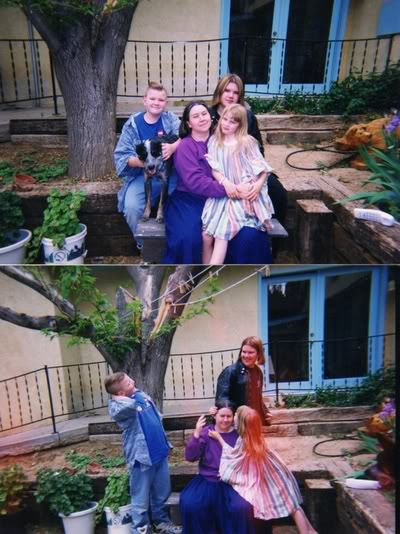
Because you become a better partner, that partnership works better.
photo by Sandra Dodd; carving by Keith Dodd

Hopefully they will then carry that forward to how they treat their children, regardless of what the current trend is, or fears they have, or the current scaremongering circulating. Even if they don't have children of their own, my hope is that they treat and speak to all children that they come in contact with throughout their lives with the same respect and kindness that they afford their partners and friends, and that they treat them like the people they are.
If you just do the nice things, that's what good partners do.


Any parent with unresolved childhood trauma might want to gradually start untangling those memories for the benefit of your children, of yourself, of your partner, of your family, and in order for unschooling to work well.
You can't be everything.
Limitations are real, and some limitations are time, patience, focus, knowledge, weather, health...
Knowing you can't be perfect, be better than you would have been if you were not aiming to be a better parent, better partner, and better person.
You can't see everything, but you can slow down and try to see more.